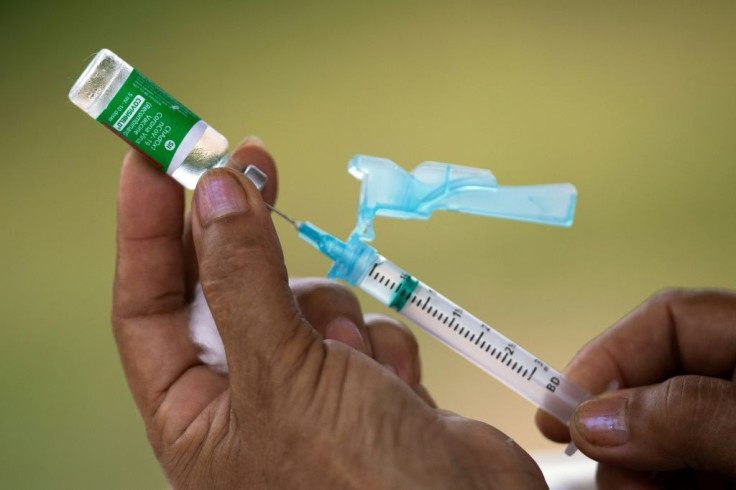6 Biggest COVID-19 Vaccine Myths Busted By Top Doctors
KEY POINTS
- Many Americans are hesitant to get vaccinated due to misinformation
- U.S. states are expected to give at least one dose of vaccine to 70% of adults by July 4
- Health experts have cleared up the confusion about the vaccine with reliable facts
At least three states in the United States have reached President Joe Biden’s vaccination goal ahead of the July 4 deadline, but vaccine hesitancy might make it difficult for other states to achieve the same target. To clear up the confusion about the vaccine, top experts have reviewed some common myths circulating on social media platforms.
So far, New Hampshire, Massachusetts, and Vermont have administered at least one dose of COVID-19 vaccine to 70% of adults in their state, according to new data from the Centers for Disease Control and Prevention.
However, a recent survey from the Census Bureau showed that a large number of Americans in other U.S. states are expressing hesitancy to get vaccinated. So now, several health experts, including Dr. Lisa Maragakis, senior director of infection prevention; and Dr. Gabor Kelen, director of the Johns Hopkins Office of Critical Event Preparedness and Response, have busted some myths and misinformation associated with the COVID-19 vaccine to calm worries.
Myth: COVID-19 vaccine can affect a woman’s fertility
Confusion arose when a social media post claimed that the spike protein in the vaccine affects the growth and attachment of a woman’s placenta during pregnancy. The post alleged that a vaccine shot would affect a woman’s fertility. However, there is currently no evidence supporting this theory. Female recipients are not required to get a pregnancy test before getting vaccinated.
During Pfizer’s clinical trial of its mRNA vaccine, 23 female volunteers participating in the study became pregnant. Only one participant suffered a pregnancy loss, but she had received a placebo and not the actual vaccine.
“The mRNA vaccine is new and different, so it may sound scary, but there really hasn’t been any evidence of it affecting fertility, and in fact, COVID for pregnant [people] is dangerous,” Sarah Bauerle Bass, associate professor and director of the Risk Communication Laboratory at Temple University, told the Philadelphia Inquirer.
Myth: COVID-19 survivors don’t need a vaccine
People who have recovered from COVID-19 are still advised to get vaccinated due to the possibility of re-infection and the severe health risks associated with the virus. It is currently unclear that for how long people are protected from contracting COVID-19 after they have had it (natural immunity).
In a trial conducted by Pfizer, several subjects who were previously infected received vaccinations without ill effects.
Usually, people who tested positive for the virus and received monoclonal antibodies or convalescent plasma as treatment are advised to wait 90 days before getting a COVID-19 vaccine shot.
Myth: You don’t need to wear a mask after receiving COVID-19 vaccine
Individuals who are fully vaccinated are still advised to follow coronavirus preventive measures. This includes wearing a face mask and practicing social distancing outside the household.
Vaccines do not stop the coronavirus from entering your body. They will only prevent people from developing moderate to severe COVID-19.
Myth: Researchers rushed vaccine development, so it can’t be trusted
The vaccines available on the market were produced at record speeds as part of massive investments from the government, including former President Donald Trump’s Operation Warp Speed.
The technology used to create Pfizer/BioNTech and Moderna vaccines had also been in development for years. Additionally, China isolated and shared genetic information about the virus during the early stages of the pandemic, allowing scientists to begin developing vaccines.
Myth: COVID-19 vaccine gives you coronavirus
COVID-19 vaccines do not contain the SARS-Co-2 virus, which means they cannot give recipients coronavirus.
The genetic materials in the Pfizer and Moderna shots are designed to deliver a code to human cells that would teach them how to make a protein that helps the immune system respond to the actual virus in case of an infection.
The Johnson & Johnson vaccine also uses a similar genetic makeup as the Pfizer and Moderna shots. However, it delivers the code using a disabled adenovirus, which is not related to COVID-19.
Myth: COVID-19 vaccine can change a person’s DNA
Pfizer and Moderna’s COVID-19 vaccines carry mRNA, which enters a person’s cells and helps the body produce spike proteins to stimulate the immune system. However, the materials in the vaccine do not enter the nucleus of the human cell, which houses the DNA.

© Copyright IBTimes 2024. All rights reserved.






















